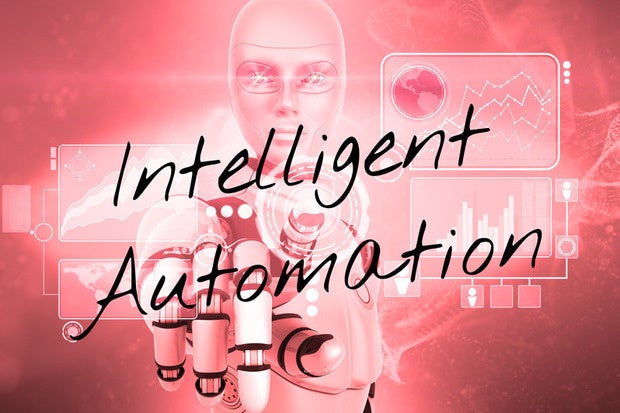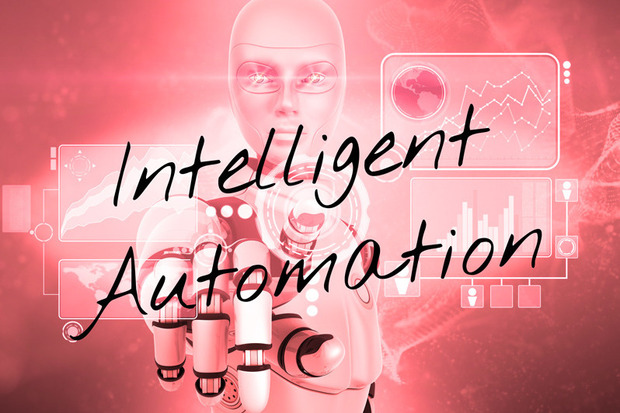
RELATED TOPICS
Forbes contributing writer Adrian Bridgwater recently observed on Forbes.com, “Automation is massively important in the realm of software application development and software systems testing/management today.”
A new industrial revolution. “Technology automation is in fact not so far away from the industrial automation systems that drove the industrial revolutions - i.e. it looks after ‘stuff’ when the humans aren’t watching.” Replacing manual effort with automation is a trend that’s unmistakable when it comes to maintaining enterprise landscapes.
Bridgwater continues, “Automation agents are chunks of software code that run with an explicitly defined goal and serve internal system needs such as initiating, validating, monitoring (and if needed) terminating (or altering) other software applications or processes.”
Today, that approach can help companies reinvent the business of enterprise applications by using intelligent automation to manage rising volume, velocity and complexity.
It takes an army. Imagine commanding a vast army of robots that are on call 24 hours a day, 7 days a week. At your command, they can jump into action and verify that all of your business scenarios work across all enterprise applications just as your end users would use them. Of course, they are not physical robots, they’re intelligent software robots. These software robots can even execute parts of your digital back-end processes in production to eliminate tedious repetitive tasks that your users do every day.
This is the emerging reality where digital labor is the new low cost alternative to manual labor. Intelligent software can easily handle most manual tasks with a surprising degree of sophistication.
For example, these robots can perform functional tests that help companies check every business process and every underlying enterprise system – every day. In fact, one enterprise is validating 300,000 business process steps daily on 100 virtual machines. Given the complexity and scope of today’s enterprise landscapes, automation offers the only way to validate end-to-end business processes completely and efficiently. There’s just no way to do this manually.
What makes it intelligent? Software robots don’t just mindlessly reproduce manual activity. They can actually make intelligent decisions just like a human being would, based on dynamic information. Errors and exceptions can be checked along the way and alternate actions taken when things do not quite work as expected.
Intelligent automation software actually has an “understanding” of your business processes and their variations, and takes that knowledge into account when executing automated business process validation to verify that the right business outcome occurred.
When changes are made to underlying enterprise applications (like SAP, Oracle, or Salesforce.com) the automation software can also point out which business processes are going to be impacted by the change - and therefore need to be tested. Intelligent automation can also update its own understanding and description of those business processes by incorporating what’s changed into its database of existing processes.
The result? Acceleration and efficiency. Another enterprise client was able to automate enough processes to save more than 50,000 hours of labor and complete test cycles up to 50 percent faster due to rapid test execution activities, along with a dramatic decrease in production defects.
Automatic automation architects? Not overnight. As Forbes’ Adrian Bridgwater points out, “Nobody moves from previously more static systems to cloud-based web-centric high-velocity quality software engineering models overnight.” It takes training and lots of it for certified automation asset developers and automation architects, members of project enablement teams and solution architects, to meet the growing demand for business process validation and automation.
It means high velocity quality engineering. As companies pivot from traditional testing to high-velocity quality engineering models, automation platforms are key to driving agility and innovation into the application development lifecycle. Over the last 5 years, automation adopters have found that it enables faster, more predictable projects because automation eliminates manual effort and the variability in quality and coverage that go along with it. It also means more frequent deployments to market for your business, because every project is faster – and you can do more with the same team.
What do you need to get going? Intelligent automation platforms such as Worksoft Certify® eliminate manual quality assurance and execution steps, automatically validating business processes on a daily basis to identify production defects and replacing manual labor in production. Then there’s Worksoft Analyze™ which automates business process discovery. That means capturing end users’ normal activities and connecting them in an end-to-end process, using artificial intelligence.
Bridgwater concludes, “One truth is for sure; software is getting faster (more continuously delivered and developed with more Agile CAPS-A process), so more automation controls should reduce the risk of fingers being lost in the machinery.” Hard to argue with that. With today’s pace of change, every app and every business process need to work – all the time and on every device. Go bots.
For more information, please contact us.

